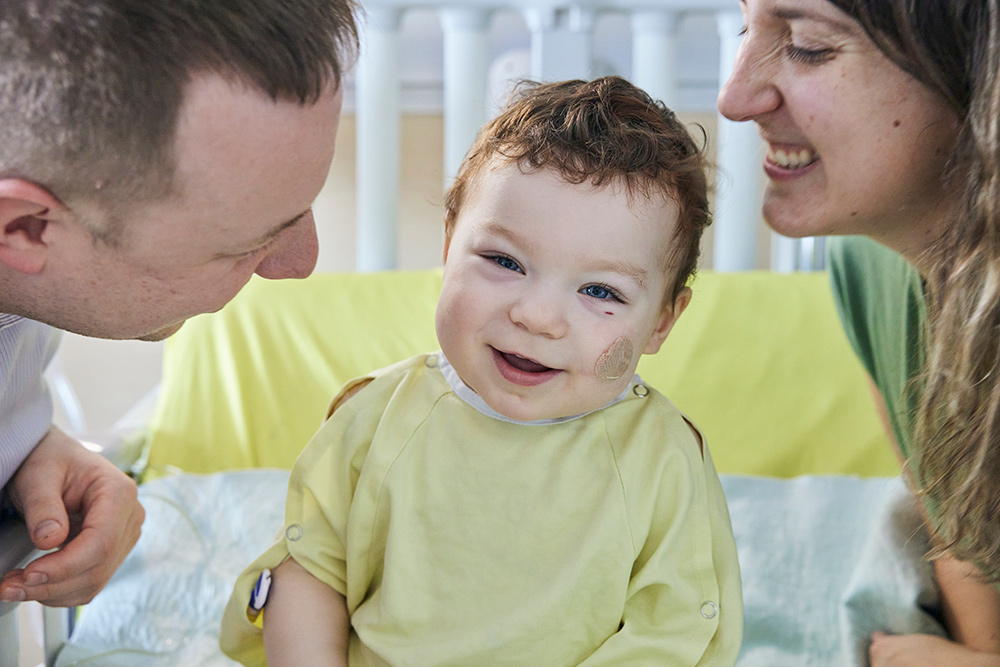Because providing care in childhood has more impact to ensure better overall health overall than intervening at any other stage of life.
More than ever, Growing Beyond for every child in a targeted way makes it possible to prevent and predict the onset of illness that could limit their immediate and future development. Acting early, often in the mother’s womb, means preventing the onset of more serious forms of disease. It has a transformative effect on the entire life trajectory of a child and his or her family.
Transforming the life of every child in Québec
There’s not a minute to lose to keep up with the best in pediatrics.
Our goal : $500M
Growing Beyond our wildest dreams

Children don’t do things in a small way. They create worlds filled with larger-than-life characters and flowers that reach the sky. Teens dream big, act boldly and make over-the-top their norm. Like them, and for them, the CHU Sainte-Justine Foundation sees beyond the impossible to redefine what’s possible.
Working with you to achieve the greatest impact
Growing beyond with us means transforming lives, for life.
